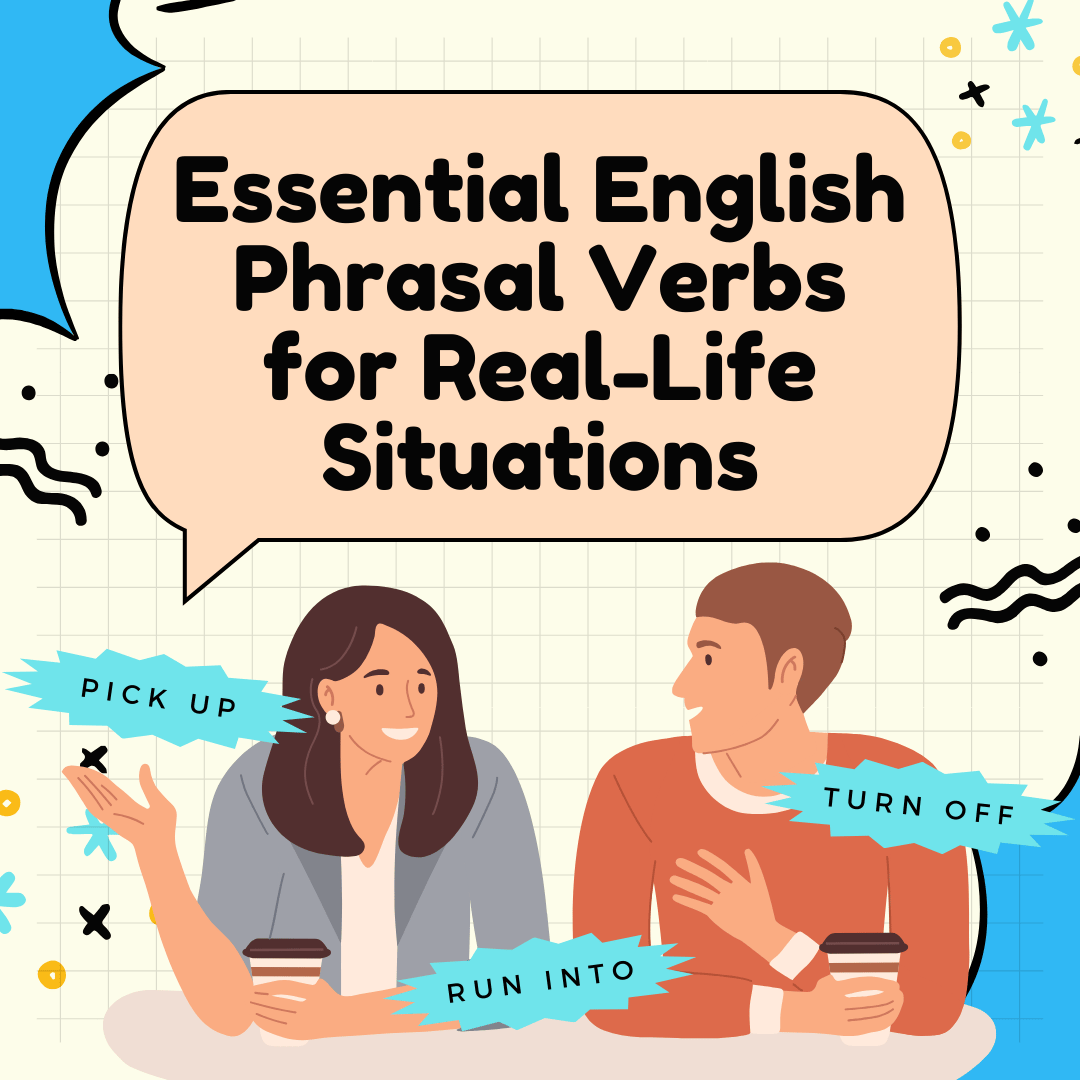Mastering phrasal verbs is a game-changer when it comes to sounding more natural in English conversations. These versatile word combinations are commonly used by native speakers in everyday situations, and knowing them can help you understand and participate in real-life dialogues more confidently. Here’s a list of essential phrasal verbs that are incredibly useful for day-to-day interactions, along with examples to help you integrate them into your vocabulary.
1. Pick up
Meaning: To collect someone or something. Example:
- "Can you pick me up at the station at 6 PM?"
- "I need to pick up some groceries after work."
Read our other articles:
How to Think in English: Breaking the Translation Barrier
How to Practice English Speaking Alone
2. Turn off
Meaning: To stop a machine or device. Example:
- "Please turn off the lights when you leave the room."
- "Don’t forget to turn off your phone during the meeting."
3. Run into
Meaning: To meet someone unexpectedly. Example:
- "I ran into an old friend at the supermarket yesterday."
- "It’s always nice to run into familiar faces when traveling."
4. Look forward to
Meaning: To anticipate something with excitement. Example:
- "I’m really looking forward to the weekend!"
- "She’s looking forward to starting her new job."
5. Put up with
Meaning: To tolerate something or someone unpleasant. Example:
- "I can’t put up with this noise any longer."
- "We had to put up with some delays, but the trip was worth it."
6. Catch up
Meaning: To reach the same level or standard as someone or something. Example:
- "I need to catch up on my work after being out sick."
- "Let’s meet for coffee and catch up on each other’s news."
7. Give up
Meaning: To stop trying to do something. Example:
- "Don’t give up! You’re almost there."
- "He gave up smoking after ten years."
8. Break down
Meaning: To stop functioning (for machines) or to become very emotional. Example:
- "Our car broke down on the way to the airport."
- "She broke down in tears when she heard the news."
9. Call off
Meaning: To cancel something. Example:
- "We had to call off the meeting because of the bad weather."
- "The concert was called off at the last minute."
10. Figure out
Meaning: To understand or solve something. Example:
- "I can’t figure out why my computer won’t turn on."
- "It took me a while to figure out the solution to the puzzle."
Tips for Practicing Phrasal Verbs
- Make Flashcards: Write the phrasal verb on one side and the meaning with an example on the other.
- Watch English Media: Listen for phrasal verbs in TV shows, movies, and podcasts.
- Practice in Sentences: Use new phrasal verbs in your own sentences to make them stick.
- Group by Themes: Organize them by context, such as travel, work, or emotions, to make learning easier.
With these phrasal verbs in your toolbox, you’ll be able to navigate real-life English conversations more naturally and confidently. Start practicing today and see how quickly your speaking and understanding improve!
Download Bookvo Now!










